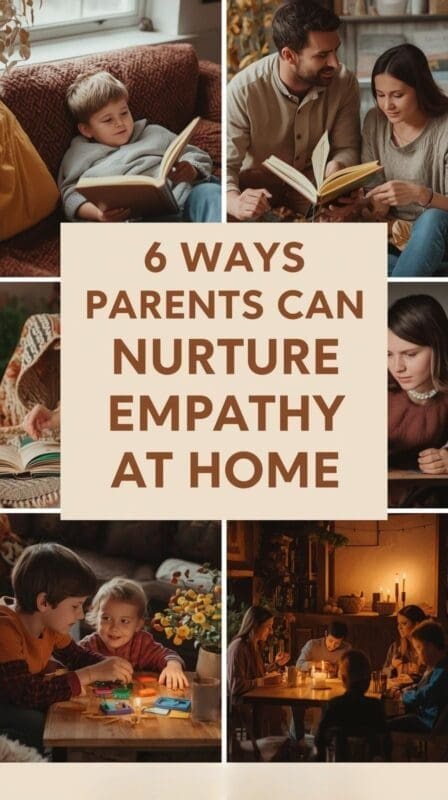Empathy doesn’t only grow in classrooms — it begins at home. Parents are children’s first teachers in kindness and compassion. By weaving small, intentional practices into daily life, families can nurture empathy and help kids develop stronger emotional connections.
Here are practical ways parents can foster empathy at home.
1. Model Empathy in Daily Life
How it works:
- Narrate your own feelings: “I feel frustrated, but I’m taking a breath.”
- Show compassion toward family members, neighbors, or even pets.
Why it helps: Kids learn empathy by observing how adults respond to emotions.
2. Use Emotion Language Frequently
How it works:
- Ask your child: “How do you think your sister feels?”
- Label your own emotions openly: “I feel proud of you for sharing.”
Why it helps: Expands emotional vocabulary and normalizes feelings.
3. Create a Family Gratitude Ritual
How it works:
- At dinner or bedtime, share one thing each person is grateful for.
- Write them in a family gratitude jar or notebook.
Why it helps: Builds positivity and awareness of others’ contributions.
4. Volunteer or Help Together
How it works:
- Choose family projects like baking for a neighbor or donating toys.
- Involve children in the decision-making process.
Why it helps: Shows that helping others is part of family values.
5. Role-Play Everyday Conflicts
How it works:
- Use dolls, action figures, or simple skits to act out sibling disagreements.
- Ask: “How do you think each character feels? What could they do differently?”
Why it helps: Turns family conflicts into teachable empathy moments.
6. Celebrate Kindness at Home
How it works:
- Create a “kindness board” or small chart where kids add stickers for kind acts.
- Recognize and praise empathy when you see it.
Why it helps: Reinforces the idea that empathy is valuable and noticed.
Final Thoughts
Empathy grows through everyday interactions. By modeling feelings, practicing gratitude, role-playing, and celebrating kindness, parents help children see the world through compassionate eyes. These small habits build lasting skills that strengthen family bonds and prepare kids for meaningful relationships beyond home.
For more ideas, explore my guides on Empathy Activities for Kids and Parent Self-Care When Raising Impulsive Kids.

About the Author
Hi, I’m Eve, a former school counselor with a master’s degree in School Psychology and a passionate advocate for children and families navigating sensory challenges. As a mom of children with sensory sensitivities, I deeply understand the journey special-needs parents face, and I dedicate myself to researching and sharing practical solutions to help children thrive and feel comfortable in their bodies. My goal is also to empower counselors, therapists, and psychologists with creative strategies and supportive resources to enrich their everyday practice. When I’m not writing or exploring new therapeutic approaches, you’ll find me spending quality time with my family and continually seeking inspiration from everyday moments.



